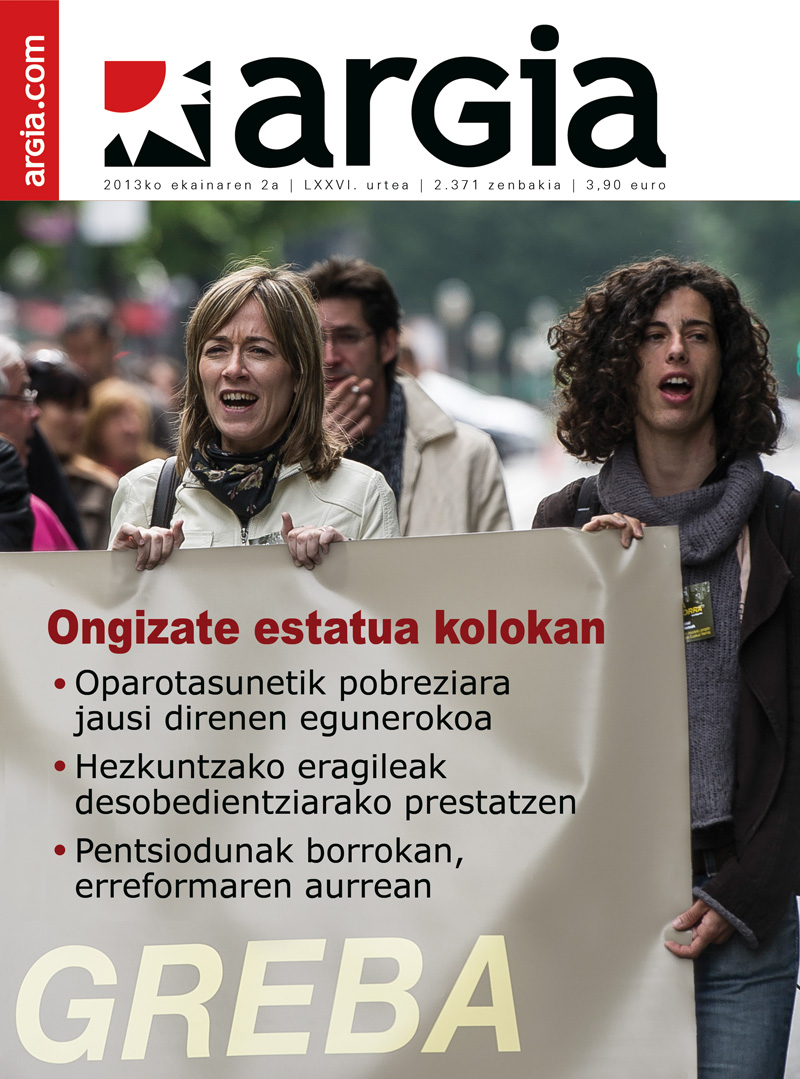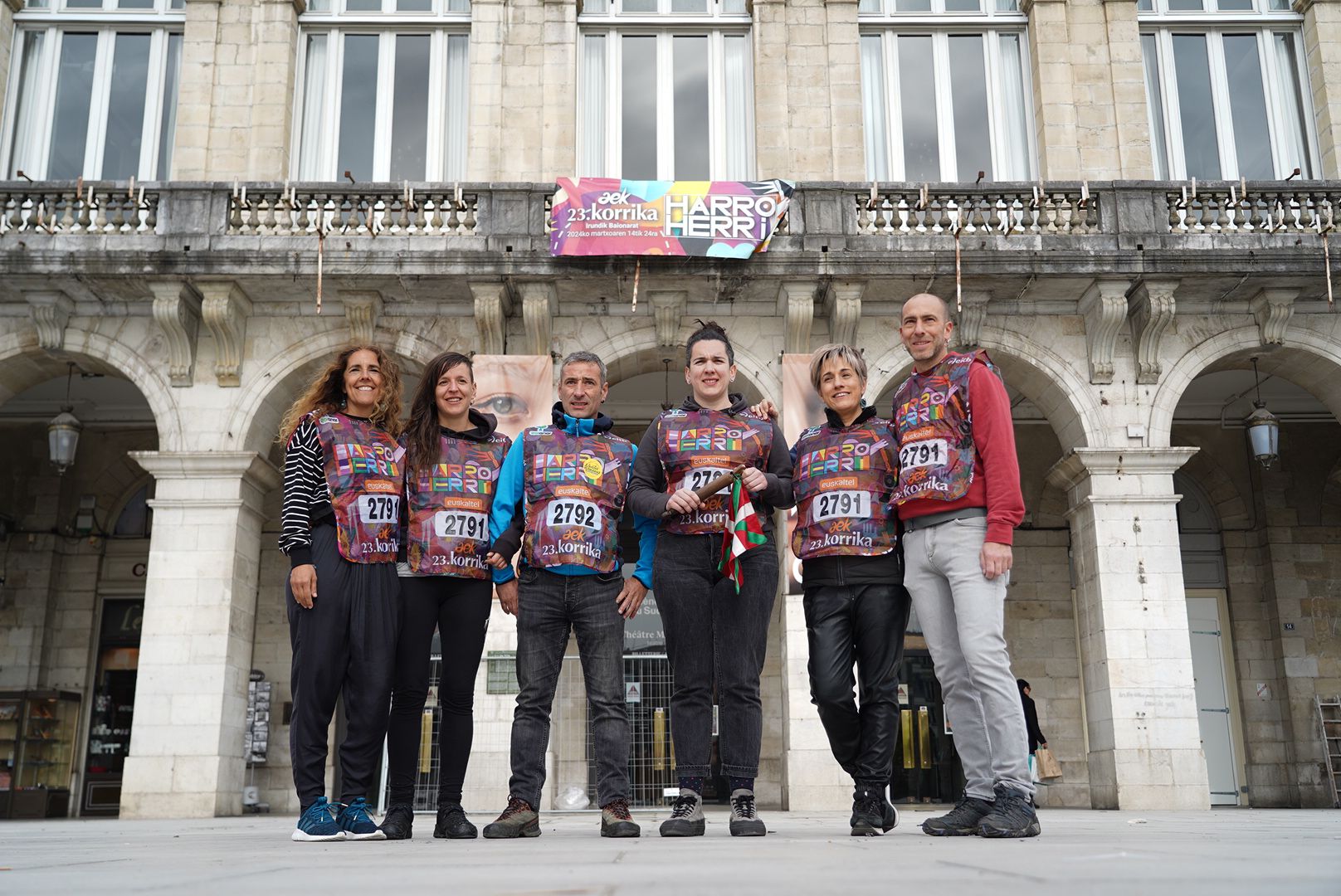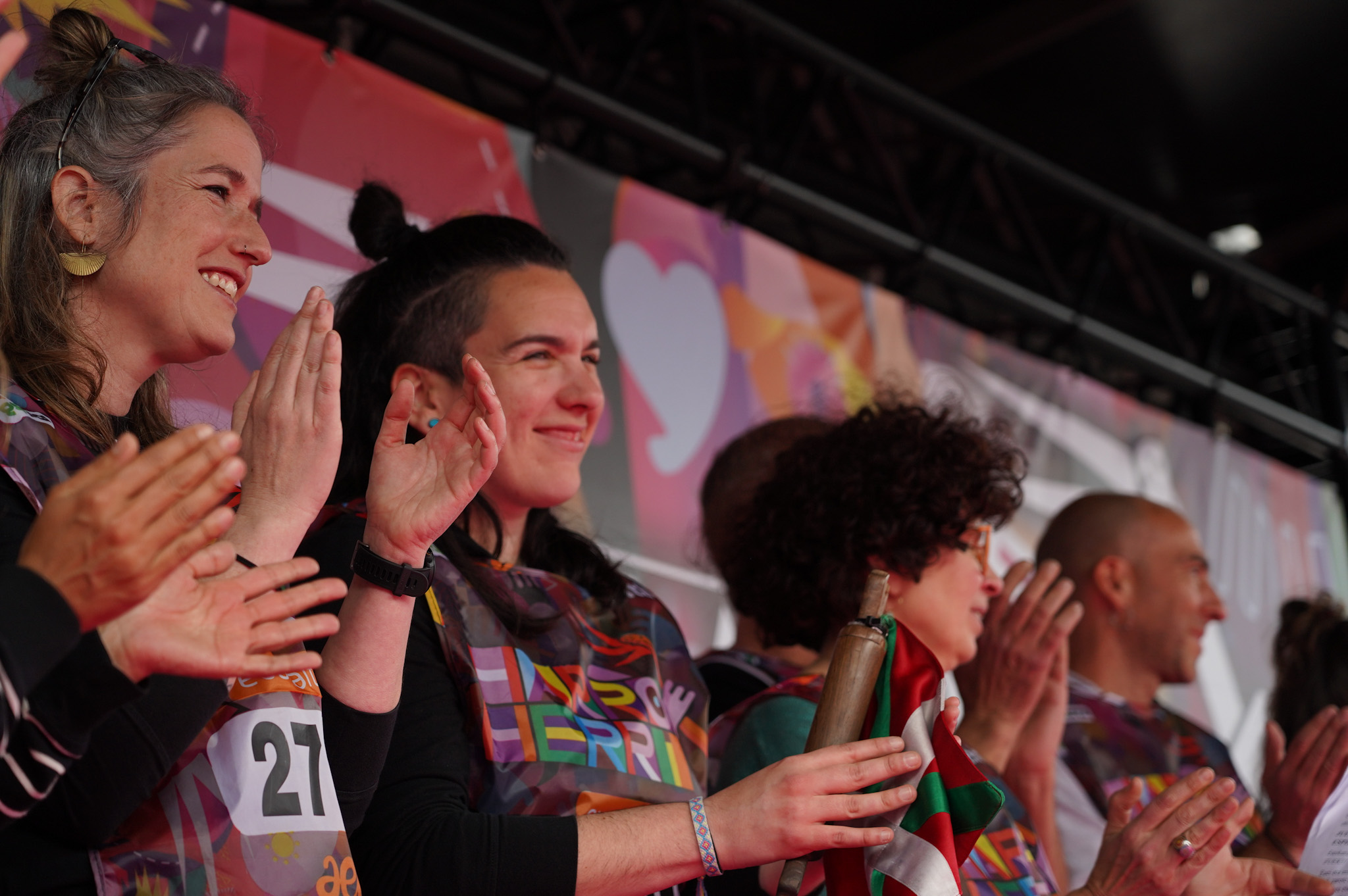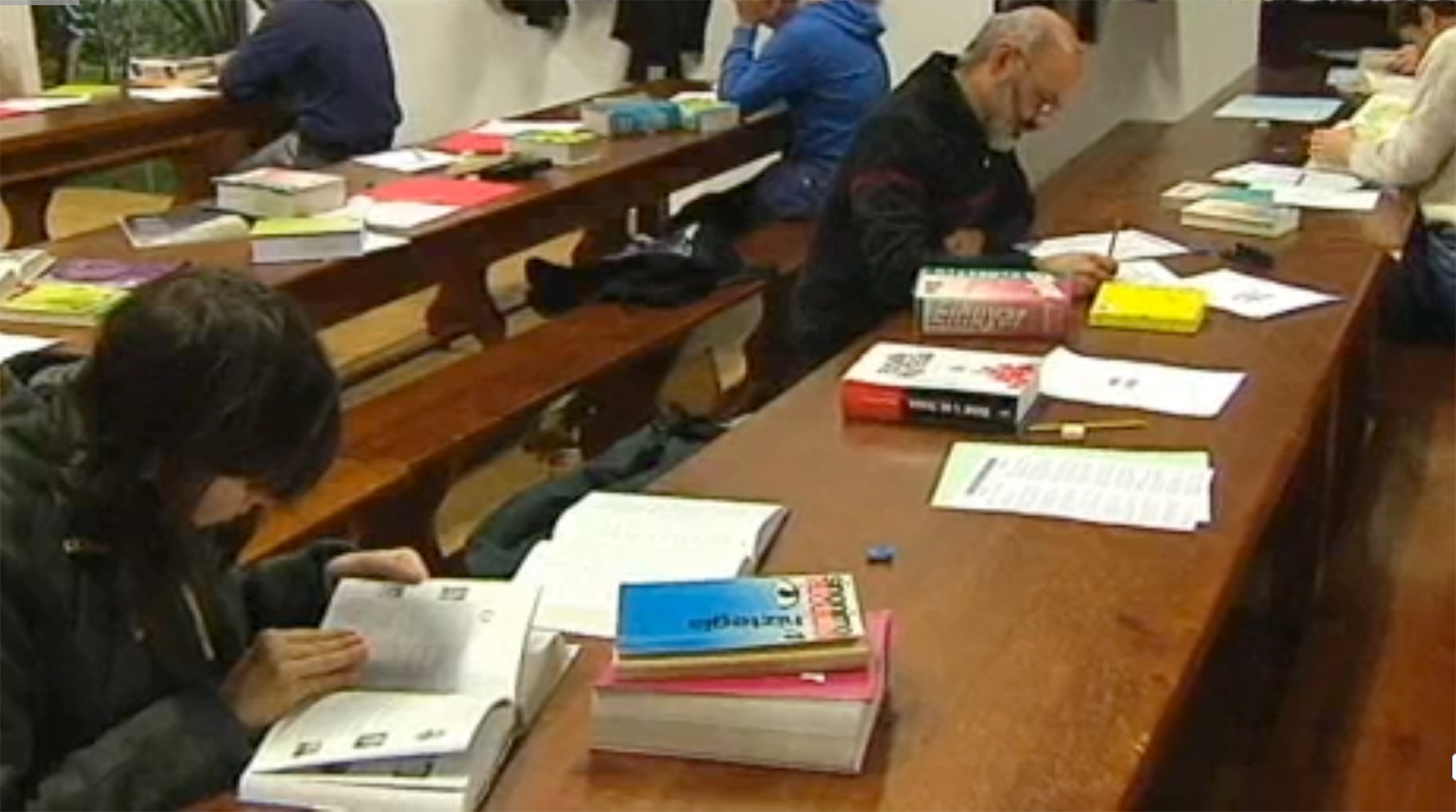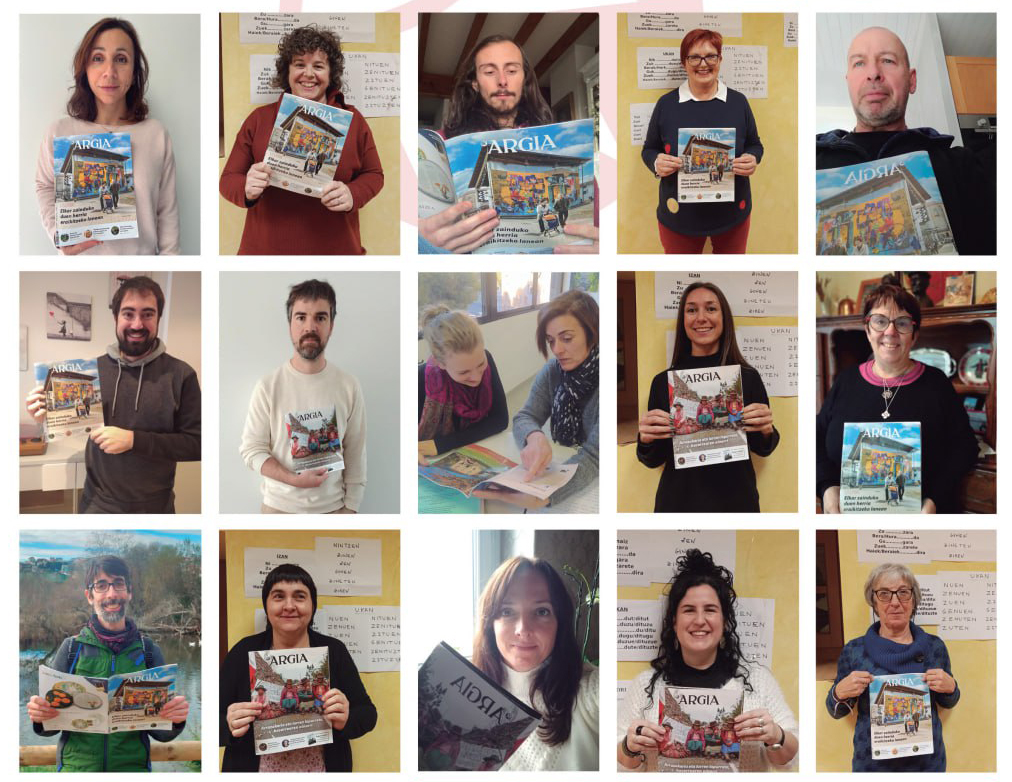The work of the Acuilu School to get closer to the Basque Country
- The number of boys and girls in the ikastolas increases, but it is not enough, the language also has to live outside school, in the squares of the village, in the amusement parks, on the mountain... Gradually, parents become aware of this.
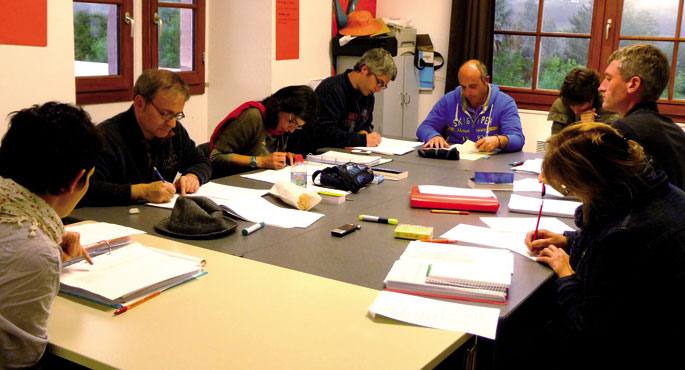
Although they live without the Basque Country, some parents offer their children the possibility of learning the language. In Hego Euskal Herria it is common for children of parents who do not know Euskera to learn in model D, in Ipar Euskal Herria more and more children are enrolled in the ikastola. This will guarantee the children the learning of the Basque country, but the work that the environment can do is essential, as the report of sensitization of the Basque Country of SEASKA says, “the house and the family must
offer an affective extension of the ikastola”. To the parents who have a child in the ikastola, they make them understand that the Basque language is the language of the child, that is, that it is not only the language of the ikastola, and that the Basque language should cover all areas. To do so, they remind them that they are the most effective source of motivation and that Euskera is not a children's language. Fathers and mothers internalize the ideas of SEASKA and more and more activities children and mothers perform to enjoy free time in Basque.
Xan Aire, a member of SEASKA, has spoken about the Enjoy programme being carried out at the ikastola de Sara. Once a week families, boys and girls meet with parents, outside the ikastola and perform various activities. “In the town square you can play games or go to the jungle to collect chestnuts and then make a nice evening. They do things like that and it’s very interesting,” explains Air.
Similarly, the Euskaraz Bizi project works. It is developed throughout the Basque Country and in Lapurdi, Zuberoa and Baja Navarra different areas are worked: the use of the Basque language in the school and outside it, the linguistic policies and the families of the ikastolas. In the latter case, each ikastola has a group of parents who are in charge of this program. He is in charge of organizing activities outside the center with the parents or of relating with other associations and institutions of the people to analyze how the services are used. Currently the Euskaraz Bizi project is being developed at 25 ikastolas in Iparralde.
SEASKA also offers another resource for parents to learn and use the Basque language, in cooperation with AEK. The Iparralde Ikastolas Federation grants a scholarship to the parents of the ikastolas learning Euskera and, fulfilling a number of requirements, SEASKA returns them half of the tuition price. As explained by Aire, AEK has organized special programs for parents, with special attention to communication between the child and the parents, as well as short courses to teach games.
Passion for learning Basque
A group of parents who are learning Basque meets every Wednesday for three hours at the Itsasu Night School (Lapurdi). They do not use the programs offered by SEASKA, but they do use the subsidy from the Commonwealth of Errobi.En the group of seven people who are going through the verbs, both those who have started learning Basque this
year and those who have done so for five years are together. Asked why they learn Basque, each gives their reasons: “To know”, “to speak”, “to play” or “to talk to the child, also with my family”. These are the words of Dominique Alzualde de Luhuso. In Iparralde, it is said that he only speaks Basque with the child. When you go south, instead, you only speak Basque with the family that lives in Amaiur. “It’s curious, I’m going to Bilbao and there I always speak Basque, and here I don’t. I don’t know why,” confesado.En the case
of young children, parents are aware that the development of Euskera is linked to that of children. This has, in some cases, led to corrections by the smaller ones. This is what Xantu Weiss, a corso set in Urruña, says: “My son directs me but he’s sweet.” So, Weiss believes that the relationship between his father and his seven-year-old son is going to go well.
Maite Garat, the Macanese classmate, has two children, one three and a half years old and the other eight years old. The youngest has already begun to speak in Basque with his mother, the oldest costs him more. At first there was French and Basque, and the oldest was accustomed to answering in French. “When the child was young at times he spoke in French; if he wanted to explain something better he would start in French and then in Basque, if he spoke fluently to explain things, he would speak in Basque,” says Garate.
Despite having learned Basque, it is still difficult for them to use it. Nadčge Erdouse has four children and although she recognizes that it is better to do homework in Basque, she recognizes that it is difficult to speak in Basque everyday with children and children as.Para to be able to collaborate with the work needs to receive a specific teaching in Basque
and help them in school. Weiss asks the teacher to create a mathematics dictionary to help her child, and Mixele Aguer promises her to work.
Aware of the importance of leisure, the teacher proposes a new exercise: he explains five games in French. By couples or triples, they have to choose one, understand it and prepare for the partners to express themselves in Basque. On this occasion they will teach and in the morning they will teach the children's play.
Lack of space for language use
In the opinion that they know the daily reality better than anyone else, we have asked the students if they can live in Basque. Some have responded immediately that no, Weiss said that another
thought needs to be made and people sought, although it is fuzzy cil.De the same opinion is Professor Aguerre, who considers that it is very difficult to find an Euskaldun environment and that students have to make a double effort, on the one hand study Euskera and on the other look for spaces to use it. That is why AEK cannot carry out several of its projects in the South of Iparralde, such as Mintzalaguna, because it is difficult to find Euskaldunes. However, he explained that there are similar projects: In Hendaia exchanges are held to learn Basque and French. Taking advantage of the fact that many people in Hegoalde want to learn French, sometimes they do it together in French and others in Basque.
Agüer hopes that it will be used through the ikastola. In the area of Itsasu there are quite a few ikastolas a few kilometers away, which in the future can make boys and girls of one and the other relate in Basque. At the moment, the fact that boys and girls go to the ikastola has made the local dance group teach in Basque.
Plazara, AEK, Uda Leku, Dindaia eta Ebete antolakundeak Baionan elkartu dira Famili'on egonaldi ibiltariaren lehen edizioa aurkezteko. Hizkuntza mailaren arabera eskaintza bat edo beste egongo da eta haur zein gurasoentzat izango da udaberrian.
It is not Christmas, however, there will soon be decorations in the big shops to announce it, or at least they say so. In the shop window “Zorionak! Claims like “Gabon ederra passes!” will be exposed everywhere. However, congratulations can be many: the lottery, bringing a... [+]
Badira sei-zazpi urte kartzelan dauden presoek euskara ikasteko duten eskubidea bermatzeko helburuarekin, lanean aritu den euskara-irakasleen sare bat: Presoen Euskara Irakasleen Taldea.









